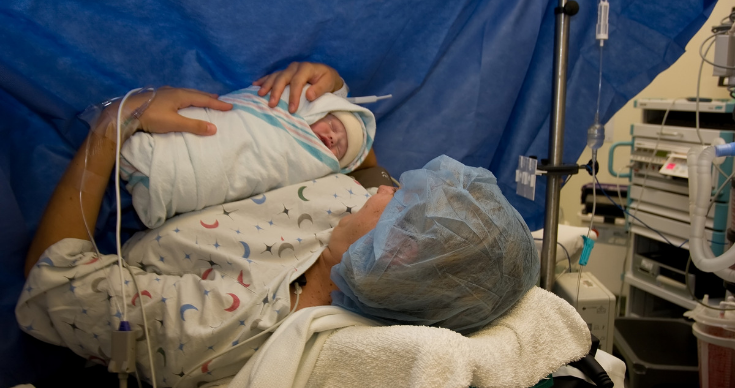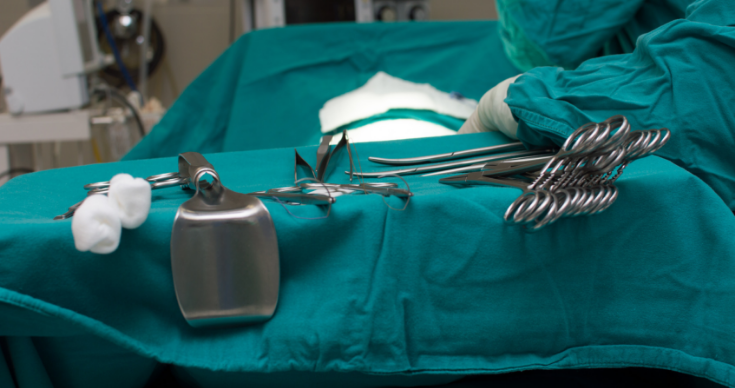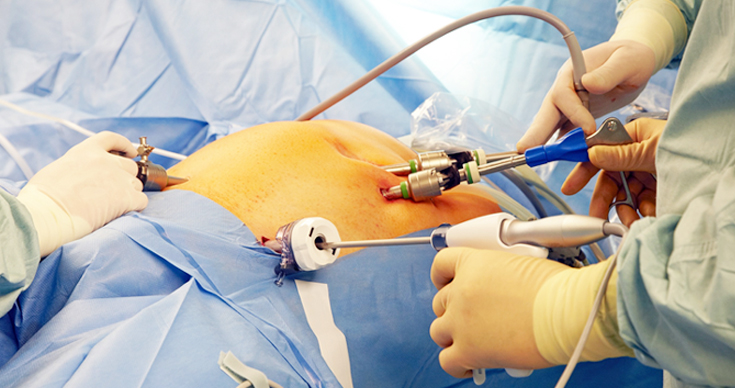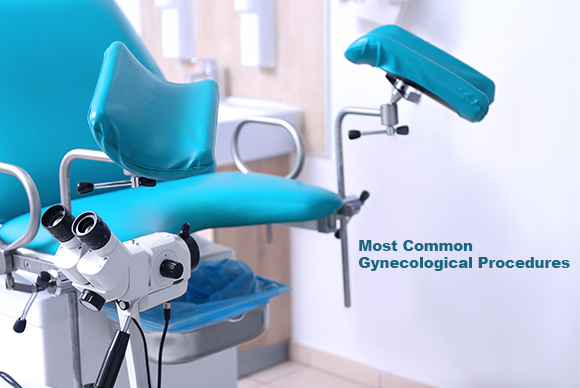All About Blood Groups and Immune System
Blood groups affect our immunity directly. Different blood groups are responsible for antibody generation in our bodies in response to viruses, bacteria, and other intruders.
When antigens present in the blood come in contact with an unknown substance, they signal the immune system to take the needful measures against such components. Blood is broadly classified into 8 types, and you must know your blood group before undergoing any medical procedure.
Understand how your blood type is related to the health and immunity system and how likely your body will acquire various diseases based on your specific blood group.

Cancer
It is observed that blood group A is more likely to develop stomach cancer among all blood groups. The ABO gene also plays a significant role in heightening cancers of the lungs, breast, liver, etc. If you have an A blood group, it’s wise to get yourself thoroughly checked for these cancers.
Stress
If you have a blood group A, stress might be a common and frequent issue for you. As individuals with such blood type have more release of cortisol and stress hormones in their body, they might find it very tough to deal with anxiety.
Heart Diseases
A specific type of gene called an ABO gene can put you at a greater heart disease risk. This threat multiplies further if you live in an area where pollution levels are high. If you belong to the blood group- A, B, or AB, chances of coronary heart diseases are elevated for you. Get yourself thoroughly checked before any mishap.
Pregnancy Complications
Many people don’t know about the rhesus factor (Rh) and its fatal consequences in unfavourable contact with substances. If a pregnant woman’s rhesus factor does not match that of the child’s, the mother’s immune system might recognise the child as an allergy and start making antibodies against it. Further, this can lead to dangerous outcomes for both the mother and the baby.
If you are pregnant and are looking forward to a healthy and easy delivery of the baby, I would advise you to visit a gynaecologist hospital as soon as possible. If you live in a rural area, try contacting some well-known gynaecology hospital in Kolkata, Mumbai, Delhi, etc. These hospitals will have the best medical facilities and services and will be able to cater to all your needs.
Brain Functioning
The ABO gene can also lead to low brain functioning and memory loss and cognition problems. As the O blood group doesn’t have this gene, people with this particular blood type are free from such illnesses. Study shows that individuals having blood group, A, B, and AB, are more likely to develop memory and brain-related problems than those having O blood group.

Malaria
People with blood group O are less prone to get infected with malaria, as the parasite causing this illness doesn’t get easily attached to blood cells of O type.
You need to know your blood type before entering into a medical procedure. Your immune system might not receive certain kinds of treatments positively, and the incompatibility could be fatal. As this problem is common in blood transfusions and pregnancy, you would want to get thoroughly checked beforehand. Dredge out the best gynaecology clinic, gynaecologist hospital near you, or visit sites like www.ilshospitals.com to contact the most reputed gynaecology hospital in Kolkata and nearby cities.
Everything You Should Know About Minimally Invasive Surgery or Most commonly known as Key-Hole Surgery/Laparoscopic Surgery
Minimally invasive surgery which is most commonly known as the Key-Hole Surgery or Laparoscopic Surgery, is a specialised and advanced technique for conducting surgeries. This has been a popular technique for gynaecological procedures as well as gallbladder surgery. Laparoscopic surgery is one of the common types of minimally invasive surgeries, conducted by making small incisions, using tiny cameras, small tubes and surgical instruments. Constant innovations in the industry has led to these surgeries being shorter, with a faster recovery time, less invasive and painful along with fewer complications.
Scope of Key-hole Surgery / Minimally Invasive Surgery

Key-hole Surgery / Laparoscopic Surgery has been a popular choice for gynaecological procedures and gallbladder surgery. However, over the years, the scope for this key-hole surgery / minimally invasive surgery has increased to cater to many other surgical procedures. Now there’s scope for laparoscopic surgery for small and large intestinal surgeries, hernia repair, treatment for infertility. It is also used for diagnostic purposes like knowing the stages of cancer, checking for tumours or evaluation of the effectiveness of some treatment.
Advantages of Key-Hole Surgery / Minimally Invasive Surgery
In traditional open surgery, the doctor makes a large cut for visibility of organs and then operates on the patient. In case of minimally invasive surgery, here are some advantages that make it a better choice over traditional surgery:

- The surgeon can limit the number of cuts, the size of the incisions made and is considered much safer than traditional open surger
- The recovery period after a minimally invasive surgery is faster with smaller incisions leading to tiny or negligent scarring
- Not a lot of muscle or skin is opened up or affected, especially in key-hole surgery. The robotic surgeries are done with extreme precision
- The chances of complications also reduce in case of minimally invasive surgery, be it laparoscopic surgery or minimally invasive surgery
Along with the benefits, there is scope for major innovation and betterment of the current procedures, which is being worked on every minute by various surgeons all over the world. Minimally invasive surgery makes it easier for the patient and as well as the doctors and is the best solution to your issues. ILS Hospitals being the pioneers in laparoscopic surgery has been a leading hospital in Kolkata with renowned surgeons and facilities for key-hole surgery or minimally invasive surgery. To consult or know more about minimally invasive surgery, visit www.ilshospitals.com.
6 Best Ways To Manage Morning Sickness During Pregnancy
With pregnancy comes various other health issues, many a time leading to complications as well. One such common health issue associated with pregnancy is morning sickness or nausea and vomiting. Majority of pregnant women deal with morning sickness during the first trimester of their pregnancy.
According to gynaecologists from the best maternity hospital in Kolkata, morning sickness comes to an end during the 12-14 weeks of pregnancy (onset of the second trimester). Although the name is morning sickness, nausea and vomiting can happen at any time of the day. Morning sickness is very difficult to manage, therefore ILS Hospitals, one of the best hospitals in Kolkata and Agartala will show you 6 best ways through which you can easily manage morning sickness during pregnancy.
Eat small and frequent meals
Instead of eating big 2-3 meals a day, opt for small and frequent 5-6 meals a day. This will help a lot to curb nausea.
Snack healthily
Do not stay empty stomach for a long time. Because an empty stomach can make your morning sickness worse. Eat healthy snacks, like makhana or fox nuts, poha, upma, oats, sandwiches, soups, healthy cold fruit and vegetable juices, nutrition bars, etc.
Skip nausea-triggering foods
Avoid foods that trigger your nausea. In general, foods that amplify morning sickness are fried and fatty foods, acidic foods, odorous foods (onions), and spicy foods.
Try ginger
Ginger has helped a good percent of pregnant women during their morning sickness. If ginger works for you, try drinking ginger black tea, ginger ale, and ginger lozenges.
Avoid strong fragrances
Strong smells might aggravate nausea in some women. Do not wear perfumes with a strong scent. Avoid using room fresheners with high fragrance and stay away from cigarette smoke.
Take plenty of rest
Get 8-9 hours of sleep every night. If possible, sleep for a few hours during noon.
Consult an expert gynaecologist
Consult an expert gynaecologist and ask him or her to prescribe you anti-nausea medicines.
You can get a medical consultation from our renowned gynaecologists by visiting our hospitals in Agartala and Kolkata.
How To Have A Healthy Pregnancy During This Covid-19 Situation
COVID-19 pandemic has become a medical emergency in all over the world. It is a very difficult time for all of us. It is more difficult for women who are pregnant during this crisis. But as ILS Hospitals always says, Do not Panic and Stay Alert, following this is the only remedy during this anxious situation.
Today ILS Hospitals, one of the best hospitals in Kolkata and Agartala will suggest the would-be mothers some tips to have a healthy pregnancy during this COVID-19 situation.
Eat a diet full of nutrients
A nutritious diet is the ultimate panacea for pregnant women. You need to consume healthy foods for your baby’s growth and development. Eat fruits, vegetables, legumes, lentils, eggs, seafood, chicken, dry fruits, etc.
Drink plenty of water
Do not ignore the importance of hydration. Drink plenty of filtered water every day. Use a hydration or water reminder app on your smartphone if you constantly forget to drink water.
Take an ample of rest
Your body is responsible for carrying two individuals. Surely, your body is dealing with a lot right now. To compensate for that, take a proper amount of rest every day.
Stay hygienic
Practice good hygiene at all rates. Wash your hands properly and frequently with a good liquid handwash. Use hand sanitizer with 70-90% alcohol and tissue papers while coughing and sneezing and dispose them off at once in a closed bin. Wear a mask and disposable gloves if you have to go out for any medical emergency and live in a well-sanitized environment.
Have a good mental health
Due to this long home quarantine, you might find yourself anxious and depressed which can affect your unborn baby’s well-being as well. Do not stress, watch less news, read good books, play board games with your husband or other family members, watch informative videos and practice meditation or light doctor recomended exercise.
Stay happy and stay safe at home. Visit a good obstetrician-gynaecologist for any medical emergency. ILS Hospitals in Agartala and Kolkata is always present to help you out.
Let’s Learn Ways To Effectively Prevent Breast Cancer
Breast Cancer is a kind of cancer that develops in the breast cells. It can happen due to various factors, like gender (females are at a higher risk of developing breast cancer), obesity, ageing, exposure to radiation, previous breast conditions, alcohol consumption and genetics.
Dear ladies, ILS Hospitals, the best hospital in Kolkata would like to bring forward preventive measures for breast cancer. But before we tell you the preventive tips for breast cancer, let’s know the symptoms of the same.
-
Swelling in the breast or breasts
-
Rashes and redness in the breast/s
-
Changes in breast anatomy
-
Changes in the nipples’ appearance
-
Pain in the breasts
-
Feeling of lumps or nodes in the breasts
-
Discharge from nipples.
Now, it’s time to know how to prevent and lower your chances of developing breast cancer.
1. Maintain a healthy BMI:
Being overweight or obese (especially after menopause) puts you at more risk of developing breast cancer. Excessive fat issues increase the estrogen levels which in turn makes you vulnerable to breast cancer. To prevent breast cancer, keep a healthy body weight or BMI (18.5-24.9).
2. Control your alcohol consumption:
As we all know, alcohol consumption is injurious to health. Did you know, alcohol is also a culprit behind breast cancer? Alcohol not only raises your estrogen levels but also damages the DNA in cells causing cancer. Avoid consumption of alcohol or at least minimize it.
3. Do physical activities:
If you live an inactive lifestyle, you invite several health issues. It has been found that women who did physical activities regularly had a lower risk of breast cancer. So, ditch the sedentary lifestyle and engage yourself in physical activities.
4. Stop smoking:
Despite numerous warnings on the cigarette packets, people still smoke. Apart from lung cancer and other serious health conditions, smoking is also responsible for causing breast cancer. Ladies, if you have this harmful habit, get rid of it today to protect yourself from breast cancer.
5. Self-examine your breasts:
Regular breast self-exam (once a month) should be encouraged as it helps early diagnosis of any abnormality. To perform a breast self-exam, stand in front of the mirror and observe your breasts. Check for redness, swelling, change in size and nipple discharge. It is always best to learn this self-diagnostic method from an expert gynaecologist.
You should also consult an experienced gynaecologist, whenever you’ve any queries regarding your gynaecological health. Visit ILS Hospitals in Kolkata and Agartala for any medical help.
Can You Conceive Again After A Miscarriage
Miscarriage or pregnancy loss is a condition where the fetus dies before the four months of pregnancy. Pregnancy loss is a disturbing situation which can hamper the emotional state of the woman. The first question that all couples frequently ask the gynaecologist after a miscarriage is, will they ever be able to become parents again or is conception possible after a miscarriage.
To help such couples, ILS Hospitals would clear all the misconceptions related to pregnancy after miscarriage. So, can a woman get pregnant again after a pregnancy loss? The simple answer is, yes, she can. Several medical cases reveal that women who previously miscarried can give birth to healthier babies, so if you have experienced a miscarriage, do not believe or assume that you can never become a mother ever. The only thing to consider is whether the woman is emotionally and physically healthy enough to become a mother again. It is always preferred to wait for two-three menstrual periods after miscarriage before you try for a baby, to ensure that your hormones are perfectly balanced.
If you’re planning to conceive after a miscarriage, take note of these following tips:
1. Eat a diet full of essential nutrients:
If you follow a healthy diet, you will have a healthy body which significantly means a healthy and successful pregnancy. Make fruits, vegetables, leafy greens, lentils, legumes, dry fruits, poultry and seafood a part of your diet.
2. Quit unhealthy lifestyle choices:
The two most lethal unhealthy habits responsible for decreasing your chances of conceiving are – smoking and alcohol consumption. If you frequently eat outside food, you should stop that from now onwards. Avoid a desk-bound or inactive lifestyle.
3. Do not stress:
As we all know, stress is a silent killer. Understandably, stress and worry are common when you’re trying to conceive after losing a baby, still being positive and free of any stress is the only option. Stress surely has an impact on your ovulation process which further determines your chances of conception.
4. Consult with a gynaecologist:
If you’re trying to get pregnant, then gynaecologist is the only person you should ask for medical supervision. Your OB-GYN will diagnose and address any underlying cause behind the previous miscarriage and might prescribe you fertility treatment, if needed.
You can always visit ILS Hospitals in case of any medical assistance. We have expert gynaecologists in our hospitals in Kolkata and Agartala.
Female Infertility: Signs And Symptoms, Causes, Diagnosis And Treatment
Infertility means being unable to conceive children. In this blog, we will mainly focus on female infertility. In basic words, female infertility is the incapability to conceive a baby even after numerous unprotected sexual intercourse with a fertile partner. There are many reasons responsible for infertility in women. To be on the safer side, regular visits to the gynaecologist should become the norm of every married or unmarried woman. You need to look for these below-mentioned signs and symptoms to find the status of your fertility. Here are some signs and symptoms related to infertility:
-
Irregular menstruation: If you have a history of frequent missed periods or irregularities in the duration (if your period lasts for than seven days) of the menstrual cycle, it is a sign of female infertility.
-
Painful menses: Periods are painful, but if they become intolerable and give excruciating muscle cramps and are accompanied with heavy bleeding, then it might indicate towards infertility.
-
Dyspareunia: If every time you suffer from pain and agony during sexual intercourse, it’s time for you to consult medical advice as it is not a normal phenomenon.
-
Unwanted hair growth or hair loss: Another common symptom is hirsutism which is the excessive growth of hair on unwanted areas or alopecia or baldness on the hair scalp.
-
Sudden weight loss or gain: One of the symptoms of female infertility is unanticipated weight loss or weight gain. There are various factors responsible for gaining or losing weight so getting medical consultation is the only way to find out the cause.
Let’s find the causes responsible for infertility in women.
-
Tubal infertility or blocked and damaged fallopian tubes
-
Earlier miscarriages
-
Multiple abortions
-
PCOS
-
Endometriosis
-
Ectopic pregnancies in the past
-
Sexually transmitted infections
-
Fibroids or ovarian cysts
-
Obesity
-
Smoking
-
Alcohol consumption.
We will now throw some insight on diagnosis and treatment available for known causes of female infertility.
Diagnostic tests recommended by OB-GYN doctor to determine female infertility
-
Urine test
-
Blood test
-
Ultrasound scan
-
X-Ray: Hysterosalpingography (HSG)
-
Hysteroscopy
-
Laparoscopy.
Surely, there are various treatment methods available for this. The prescribed treatment differs for every woman. To name a few treatment methods, we have mentioned them below:
1. Fertility drugs and medication.
2. Hysteroscopy
3. Tubal surgeries
4. IVF (In vitro fertilization)
5. Artificial insemination.
We, at ILS Hospitals, provide a precise diagnosis and necessary treatment for female infertility. Book an online appointment for medical consultation from our expert gynaecologists in kolkata.
C-Section or Natural Birth – Which One Is Right For You?
Are you pregnant? Accept our hearty congratulations. Certainly, you are under the care of some expert Gynecologist and Obstetricians and have plans to deliver your baby in some good maternity hospital when the time comes. Often we find many pregnant women, especially the first-timer mothers are not very certain about which birthing method is right for them. Though it often needs to be decided by both the parents and the doctors, and that too after considering many factors. But today, we are offering a brief introduction about both C-section delivery and natural birth.
What Happens During Natural Birth?
Natural birth is also known as vaginal delivery. As the name itself implies, during natural birth, the baby is born through the birth canal. It is carried out as the uterus exerts strong contractions, pushing the baby out. Until the C-section delivery started being offered by maternity hospitals, this has been the only method of childbirth since the dawn of the human race. Mothers who deliver vaginally are often discharged from maternity hospitals much earlier than those who had C-section delivery because their recovery period is very short.

The Special Case Of Painless Delivery
You might have heard of a relatively new way of delivering baby, through ‘painless delivery’. It is carried out naturally, but with the administration of the epidural injection, that manages the pain significantly.
What Happens During C-Section
Cesarean section, or more commonly known as C-section is a comparatively newer method of childbirth. It is carried out by making an incision of length 4 to 6 inches across the lower abdomen and then on the uterus to pull the baby out. C-section can be done on both elective and emergency basis. Many a time, it is preferred and requested from the mother, when she does not want to strain herself due to labor or have long term complications such as urine incontinence, etc.

When C-Section Becomes Necessary?
As mentioned earlier, there are many reasons for opting C-section ( mainly due to medical reason). These are often diagnosed by the doctor during pregnancy or during the labor itself when the complication arises. These includes:
- The baby is larger than usual/ or the baby has a large head
- The mother has a small pelvis
- The baby is lying in head-up position (i.e breech baby)
- Twins sharing a same amniotic sac
- The mother is unable to deliver naturally
- The mother is exhausted due to strained labor
Which One Is Better For Me
Honestly, there is no particular answer for the same. For normal pregnancy without any complication, a mother can go for a natural birth, if she thinks it is best. But in case she does not want to strain herself or have any medical complications associated with it, C-section is a preferred approach. In either case, it is advised for every parents-to-be to stay prepared for both approaches.
ILS Hospitals offers both natural and C-section delivery. Get in touch with our expert Gynecologist and Obstetricians to determine which is best for you.
Most Common Gynecological Procedures
Gynecological conditions are quite common and thankfully the modern medical science can address most of them effectively. While some can be treated effectively with topical medication, some can be evaluated through non-invasive techniques, but for other condition, it becomes inevitable to use invasive techniques. Most of these procedures (both invasive and non-invasive) are carried out by expert gynecologists and obstetricians in maternity clinic and hospitals.
Here we list out some common gynecological procedures.
Dilation And Curettage
More commonly known as D & C, it is a procedure in which the doctor dilates the cervical cavity in order to remove the lining of the uterus through curettage and extract it out of the cavity through suction. It is used to diagnose any polyps or abnormal growth in the cervical cavity and it is also done to terminate any molar pregnancy and remove the fetal tissues completely after a miscarriage.
Pap Smear
This gynecological procedure should ideally be availed by every woman after the childbearing age and onwards. This procedure including extracting some tissues from the cervix using a speculum. Going for routine Pap smear can help with early detection of any malignancy in the cervix.
Breast Ultrasound
Even though breast cancer is quite common, having lumps in the breast tissue is quite common as well. Whether or not it has malignant growth, can be evaluated by ultrasonography in its original stages. A tumor that keeps growing along with warning signs like nipple discharge and pain, should be diagnosed further.
Hysteroscopy And Hysterectomy
Hysteroscopy is a non-invasive diagnostic procedure to evaluate the presence of any uterine condition. It can also offer useful insights like locating an IUD, abnormal tissue growth, evaluate reasons for repeated miscarriages.
Hysterectomy is the surgical procedure to remove the uterus if it is needed to ensure better health of the patient. Though is sound scary, it is becoming quite common these days and as per gynecologists, they are safe as well if availed form a quality healthcare provider.
Cervical Cryosurgery
Polyps and tumors in the cervix are quite common these days. Cervical cryosurgery is done for removing the tumors that do not resolve on its own. This procedure uses the cryogenic technique to freeze a section of the cervix and remove pre-cancerous cells from the lining of the cervix.
In case you need to undergo any such gynecological procedure or looking for an expert opinion to consider the same, get in touch with our highly experienced gynecologist and obstetrician at ILS Hospitals.
A Brief Introduction To MIGS (Minimally Invasive Gynecological Surgery)
Today, we live in the advanced medical era when we have numerous approaches to gynecological treatment. We have powerful drugs and injections that can offer excellent treatment for many medical conditions, however, for some illness and condition, having the need for surgery is irreplaceable. Even though traditional open surgery has an immense contribution towards overall healthcare, it does have several complications associated with it as well. Thankfully, laparoscopic surgery has emerged to offer the best results in surgical till date. So, let’s have a brief introduction to Minimally Invasive Gynecological Surgery (MIGS).
As the term clearly indicates, MIGS is a gynecological procedure carried out through a minimal incision, unlike the open surgical technique where the procedures are executed by making a large incision near the lower abdomen.
Procedure of MIGS
The MIGS initiates by making a few minute incisions, (as small as 1/8th of an inch) near the belly button. Through these orifices, the doctor inserts some carbon dioxide gas to create a working space for the operation.
A thin instrument called the laparoscope is inserted inside the cavity along with a camera, cold light source, and other necessary equipment. The camera capture the real-time visuals of the cavity. Along with the movement of the laparoscope, the surgeon carries out the procedure effectively and then the instruments are removed after completion.
Advantages of MIGS Over Open Surgery
The benefits of laparoscopic gynecological surgery are the same as that of any laparoscopic surgery. These are as follows-
- Better Aesthetics Due To Much Lesser Scarring
- Lesser Risk Of Surgical Complications Such As Bleeding, Clotting, Infection
- Lower Chances Of Need For Blood Transfusion
- Much Shorter Hospitals Stay
- Quicker Resume Of Daily Life Activities
These benefits make it a more preferred surgery technique and needless to say, it is substituting the traditional open gynecological surgery significantly.
Scope of MIGS
Some of the most common minimally invasive gynecological procedures that are carried out are as follows-
- Laparoscopic Hysterectomy And Hysteroscopy
- Laparoscopic Myomectomy
- Microlaparoscopic Pain Mapping
- Laparoscopic Cerclage Placement
- Removal Of Ovarian Cysts Or Ovaries
- Removal Of Fallopian Tube Devices
Apart from performing surgeries, the minimally invasive technique can also be used to carry out other medical procedures such as diagnostic investigation and gynecological biopsy etc. or to evaluate the extent of any illness or effectiveness of any treatment.
At ILS Hospitals, we offer extensive treatment for any gynecological and obstetrics condition. Our expert gynecologists and obstetricians offer the best treatment along with the advanced gynecological procedures.




















